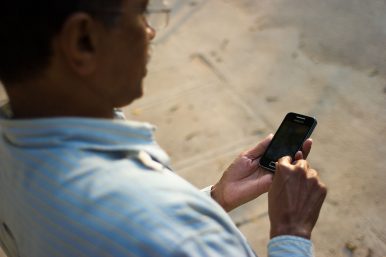By Xiaochen Su
Recent years have seen a surge in sovereign debt across a vast swath of developing Africa and Asia as a result of loan-financed, state-led large scale developmental projects. As I noted in a previous piece for The Diplomat, China’s ambitious Belt and Road Initiative is threatening to trap many African states in unsustainable debt as they take up easy loans to build up infrastructure. Failure to repay loans may lead to long-term political and even security implications as debtor states are forced to hand over strategic state assets as collateral to ill-intentioned loan-givers.
One of the primary reasons loan-receiving states fail to pay back loans is the inability to earn enough revenues from loan-financed projects. This is particularly true for infrastructure projects like roads and railways, in which cost overruns, overstated capacities, financial mismanagement, and suppressed demands together make original projections and schedules for repayment highly unrealistic. As I noted in another piece for TheDiplomat, governments may emulate business models from Japan to boost alternative sources of revenues, but such propositions may not always be feasible under differing socioeconomic conditions.
Chinese media have often altogether bypassed the entire discussion of whether Belt and Road projects are making enough money to justify expensive loans, by arguing that such projects are “public goods.” Using this logic, infrastructure projects are meant to lose money to serve as a foundation for economic development. The state can compensate for losing money with roads and railways by taxing businesses that are newly established or greatly expanded thanks to those roads and railways.
However, the Chinese logic of “build roads to become rich” faces a serious obstacle in the form of weak tax collection in the developing world. Data from the European Union show that nearly two-thirds of sub-Saharan Africa’s economic output is produced in the non-tax-paying informal economy. Data from the Heritage Foundation point out how sub-Saharan states have some of the world’s lowest tax intake as a percentage of their GDP. The fear is that even if the loan-financed infrastructure does create more business, local governments would not be able to convert the extra business into tax revenues.
One solution to the conundrum is to rely on mobile money to quickly collect taxes from the large informal economy. While strengthening physical political institutions and their governance to register informal businesses would take years, payments systems on cell phones can be used to begin tracking informal business transactions. Governments working with mobile money providers can rapidly deploy a rudimentary yet universal tax, levied as a uniform percentage across all transactions occurring on phones.
Without careful implementation, though, mobile money taxes can yield more harm than tax revenues. As Uganda found out in 2017, citizens are loath to pay taxes on mobile money, thought of as a public good that nurtures economic development. If such taxes are poorly implemented, anti-government protests may ensue (as was the case in Uganda) while both businesses and individuals ditch mobile money services in favor of old-fashioned, tax-free cash transactions. In such a case, economic costs emerge from the higher costs of monetary transactions and resulting political instability, further reducing the prospects of increasing tax intake. Instead of rushing to tax mobile money users, developing world governments would be wise to first devise strategies that make mobile money indispensable for the majority of their populations.
Interestingly, China may be able to greatly assist in this field. With data showing a world-topping 47 percent penetration in e-wallets in China and the country being home to the two largest mobile payment services (WeChat Pay with 600 million users and Alipay with 400 million), China is experienced in getting a large number of sometimes technologically challenged citizens to adopt mobile money. By nurturing technology giants that perfect both cheap and accessible smartphones and financial software, the Chinese government has enticed cash-using citizens and businesses to switch to using QR codes for payments. Other benefits, ranging from interest payments on money in e-wallets to the high costs of credit card machines, convinced many Chinese to use their phones as the preferred method of payment.
As governments and firms in regions like sub-Saharan Africa attempt to get more local consumers to adopt mobile money, it would be wise for them to look to China for lessons on how to incentivize the technology’s adoption among the general public. Once mobile payment becomes a public good a significant number of merchants and consumers cannot live without, as is the case in China today, local governments can then move forward with taxing transactions on mobile money.
Debt-financed infrastructure can nurture new businesses. And it is possible to increase tax revenue from these new businesses using mobile money. However, loan-repaying countries should exercise patience and learn from the Chinese experience in spreading the use of mobile money before cashing in on phone-based financial transactions.
Xiaochen Su is a Ph.D. candidate at the University of Tokyo specializing in immigration issues. He previously worked in East Africa, Taiwan, South Korea, and Southeast Asia.

No comments:
Post a Comment